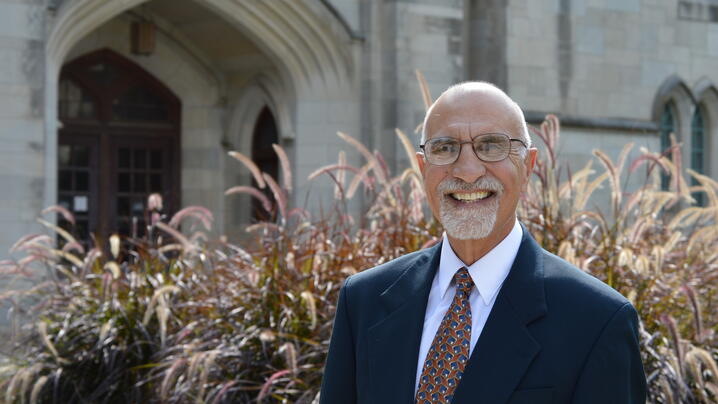
Editor's Note: Because Governing magazine elected not to give this piece by John Nalbandian the prominence received by an original article praising "hero" mayors, we are sharing it on the ICMA website and in ICMA's newsletter, Leadership Matters.
After reading Alan Ehrenhalt’s commentary, “Does a City Need a Mayor?,” as a strong advocate of council-manager government, it is with pride that I can point out:
- Two-thirds of Moody’s Aaa-bond-rated communities operate under the council-manager form.
- Council-manager cities—according to the IBM report, “Smarter, Faster, Cheaper”—are nearly 10 percent more efficient than cities with “strong” mayor forms of government.
- The majority of All-America City Award recipients for the past five years have been council-manager.
What I cannot tell you is what exactly these jurisdictions have in common as council-manager communities, other than the fact that each has hired a professional local government manager to oversee day-to-day operations. Each may have a mayor who was elected directly, or selected by and from among the council. I can’t tell you with certainty what exact powers the mayor in each community has. I can’t tell you how many council members there are, or how they are elected. I can’t tell you the length of their terms. I can’t even tell you what services each community provides.
But I can, with confidence, tell you that residents of council-manager communities can expect to see a professionally qualified staff led by an appointed manager who is ethically compelled to tell the governing body what they need to know rather than what they might want to hear. Residents can expect to see an appointed manager and senior staff that find themselves responsibly at the intersection of political and administrative arenas, facilitating the connection between what is “politically acceptable” in the community and what is “operationally sustainable.” These two basic elements of effective governance could occur under any form of government, but I deeply believe that they are embedded within the council-manager structure. This does not mean that every council-manager government does these things well, but if they do not, it is not the fault of the structure, which is designed to promote this effectiveness.
Council-manager government is fundamentally about structure—the place in which democratic values, processes, and professionalism are embedded. This structure and these qualities cannot exist when communities seek purely “heroic” leadership. I do not think council-manager communities look for Superman or Wonder Woman to create community prosperity and resilience through charismatic leadership. I do, however, believe mayor-council communities create more of that expectation.
Consider the challenges we face locally. “Adaptive work” is a relatively new concept that “requires leaders to lead through conflicting values held by different groups and to eliminate the gap between the values people have and the realities of their lives” (Heifetz 1994, p. 22). It addresses problems for which there are no existing solutions and for which all the analytical work in the world will not in itself produce a solution. Think about affordable housing, homelessness, opioid abuse, and climate change – no “heroic leader” is going to solve these issues. Leadership and organizational structures that foster a culture of experimentation anchored in trusting relationships between the governing body and an independent administrative staff must effectively address adaptive work problems, which are becoming more and more common.
“Heroic” mayors capture our attention. But, I would rather focus on a system that dependably provides access to democratic values; that promotes professionalism; that facilitates the connection between politics and administration; that gives exceptional leaders a chance to make a difference. I strongly believe that these are the characteristics of the council-manager structure, not the mayor-council form.
John Nalbandian is retired faculty member from University of Kansas School of Public Affairs and Administration. In addition to his academic career, he spent eight years on the Lawrence, Kansas, city council, including two terms as the council’s mayor.
New, Reduced Membership Dues
A new, reduced dues rate is available for CAOs/ACAOs, along with additional discounts for those in smaller communities, has been implemented. Learn more and be sure to join or renew today!
